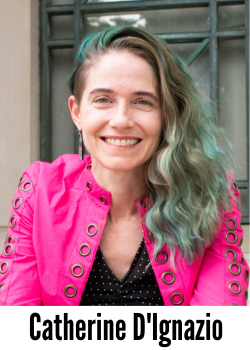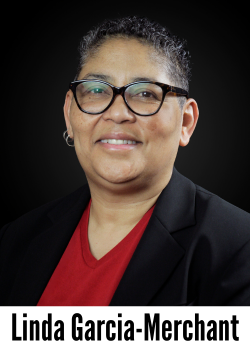A Roundtable Discussion with Data Scientists and Digital Humanities Scholars

On August 26th, 2024 —Women’s Equality Day— the Center for Public History hosted a hybrid in-person and virtual event to celebrate the Sharing Stories from 1977’s project launch of their new webpage “Researching the NWC.” This event involved an in-person data workshop and a virtual panel discussion. Speakers on the panel included data scientists and humanities scholars from far flung institutions, who met over zoom to discuss the importance of “feminisms” within data research fields.

Dr. Peggy Lindner, UH Assistant Professor of Computer Information Systems and Director of Technology for the Sharing Stories project, introduced the panel and served as moderator.
The first part of the panel involved short presentations from all of the speakers explaining their approaches and contributions to data feminism as a practice and methodology.

Dr. Roopika Risam, Associate Professor at Dartmouth, discussed Elizabeth Alexander’s poem, “The Venus Hottentot” – a meditation on past obsessions with technology and pseudoscience that led to the exploitation of women like Saartji Baartman, a South African woman who was forcibly exhibited and examined throughout Europe in the 19th century, supposedly to demonstrate African inferiority to European populations. Risam sees the poem’s sobering portrayal of violence perpetuated in the name of data gathering as a warning to data scientists and digital humanities scholars, and her research seeks to find and promote digital humanities methods that incorporate postcolonial, decolonial and intersectional feminism paradigms.

Dr. Catherine D’Ignazio, Associate Professor at MIT, discussed her and Lauren F. Klein’s book Data Feminism and her upcoming book Counting Feminicide: Data Feminism in Action, both of which explore the whys and hows for creating counter hegemonic approaches to data science.

Drs. Kristy Kang, Associate Professor at Arizona State University, and Veronica Paredes, Assistant Professor at the University of California, Los Angeles, jointly discussed their work with both FemTechNet (Feminist Technology Network) and SCRAM (Situated Critical Race and Media). These projects focus on collaboration and making the study and practice of data science an intersectional, feminist space.

Lastly, Dr. Linda Garcia-Merchant, Data Librarian for the M.D. Anderson library, discussed her Chicana por mi Raza Digital Memory project and Tlamatini magazine. Both projects focus on transgenerational exchange and the importance of the Chicana feminism movement of the 1970s being preserved by the new generation of feministas.

The final portion of the event was devoted to a roundtable discussion and Q&A panel, with questions from the audience. The speakers discussed how to approach data science ethically, in a way that builds trust, rather than simply extracting information from vulnerable communities without giving anything in return, or, in other cases, directly causing harm.
Another question the panelists tackled was how data feminists (and other participants within feminist movements) can work productively with more dominant groups or institutions. While many speakers expressed discouragement about the prospect of positive engagement with dominant groups, institutions, corporations, etc., a variety of solutions and possibilities were given.
Dr. D’Ignazio’s called for “protest and strategic litigation” while Dr. Risam’s hopes to “foster future leaders” to make positive change. Dr. Paredes advocated to impress upon dominant groups that even if issues don’t affect them now, they will in the future. Dr. Garcia-Merchant champions the importance of patience and perseverance to the simple effect that “we’re not going anywhere.”